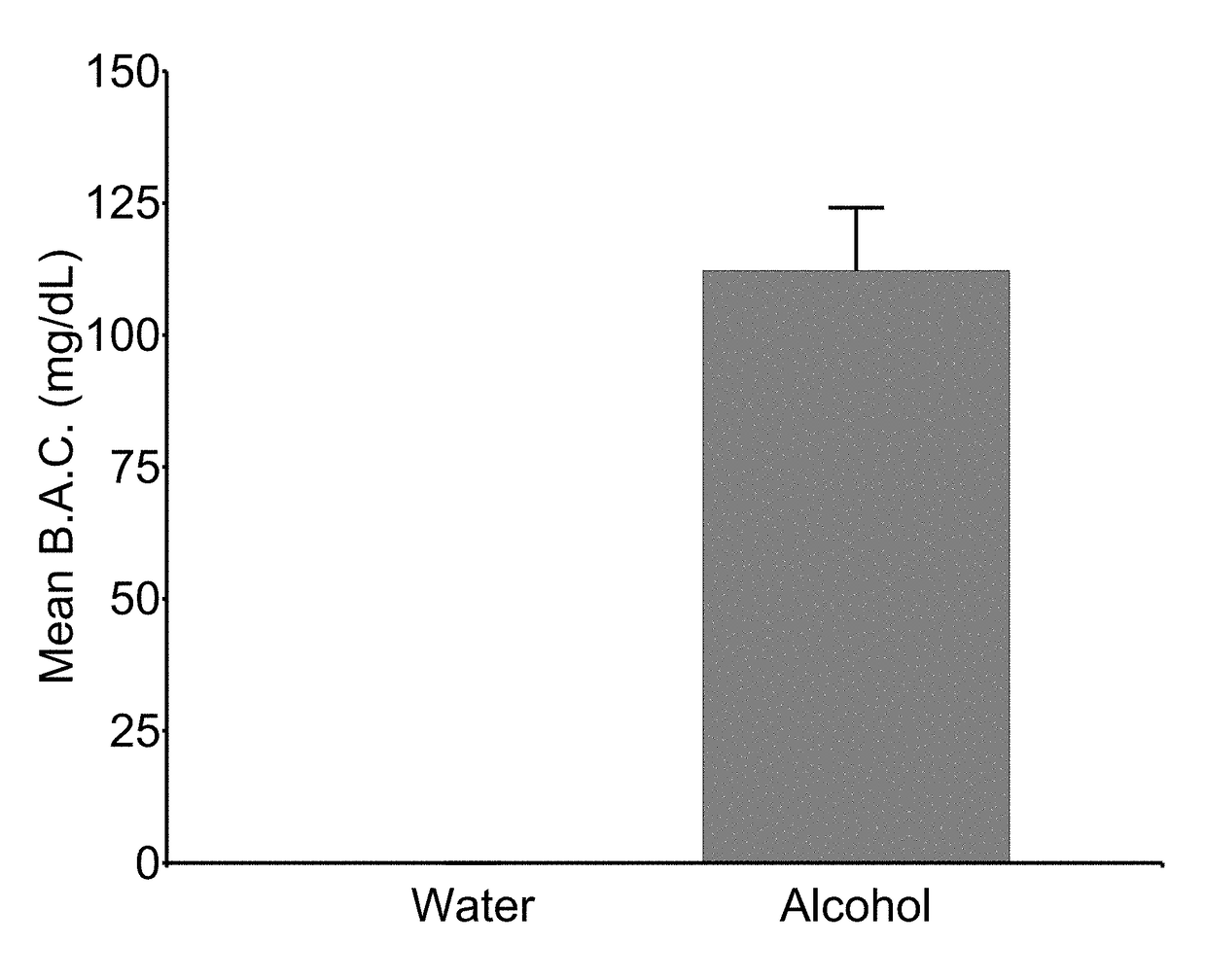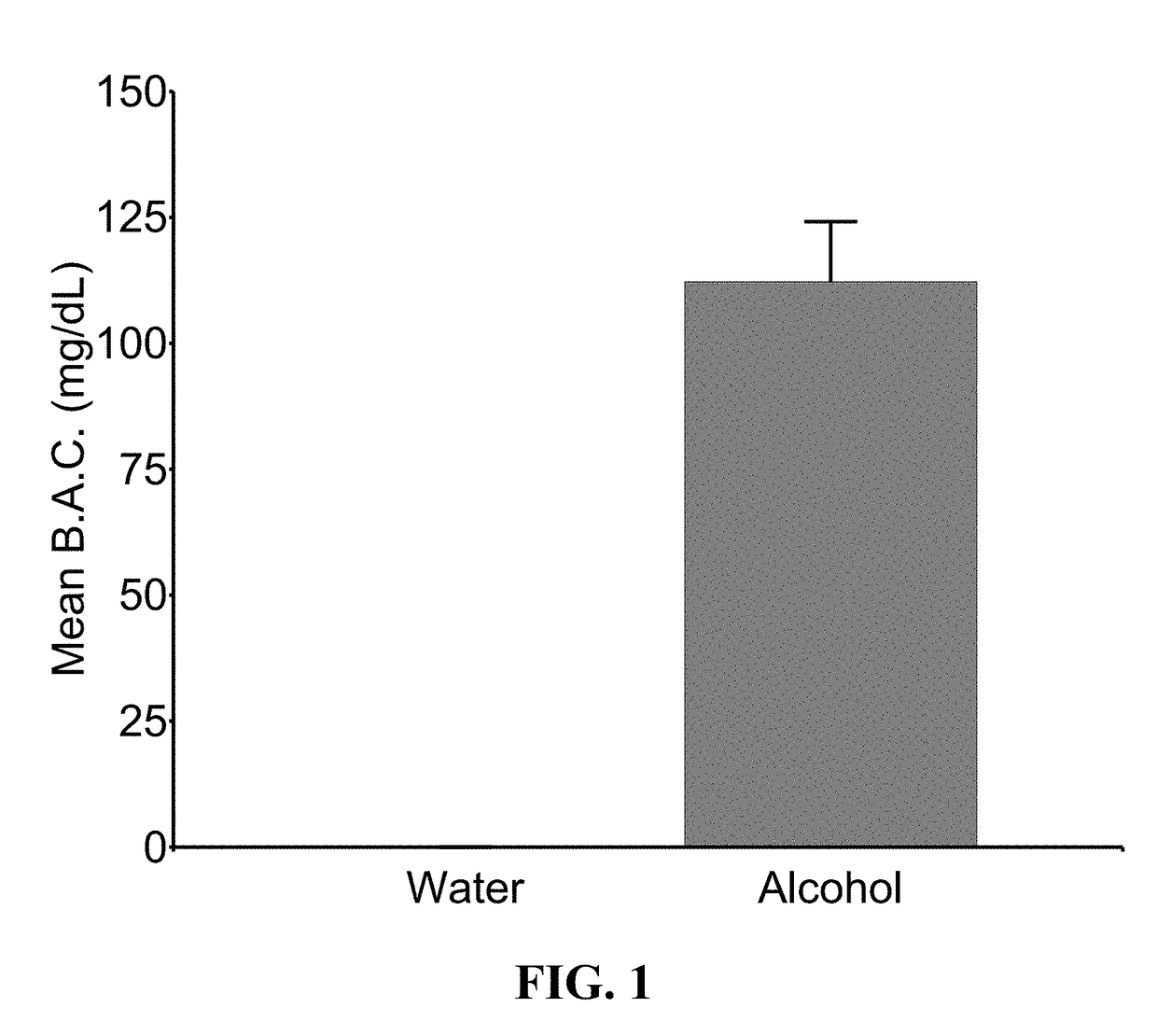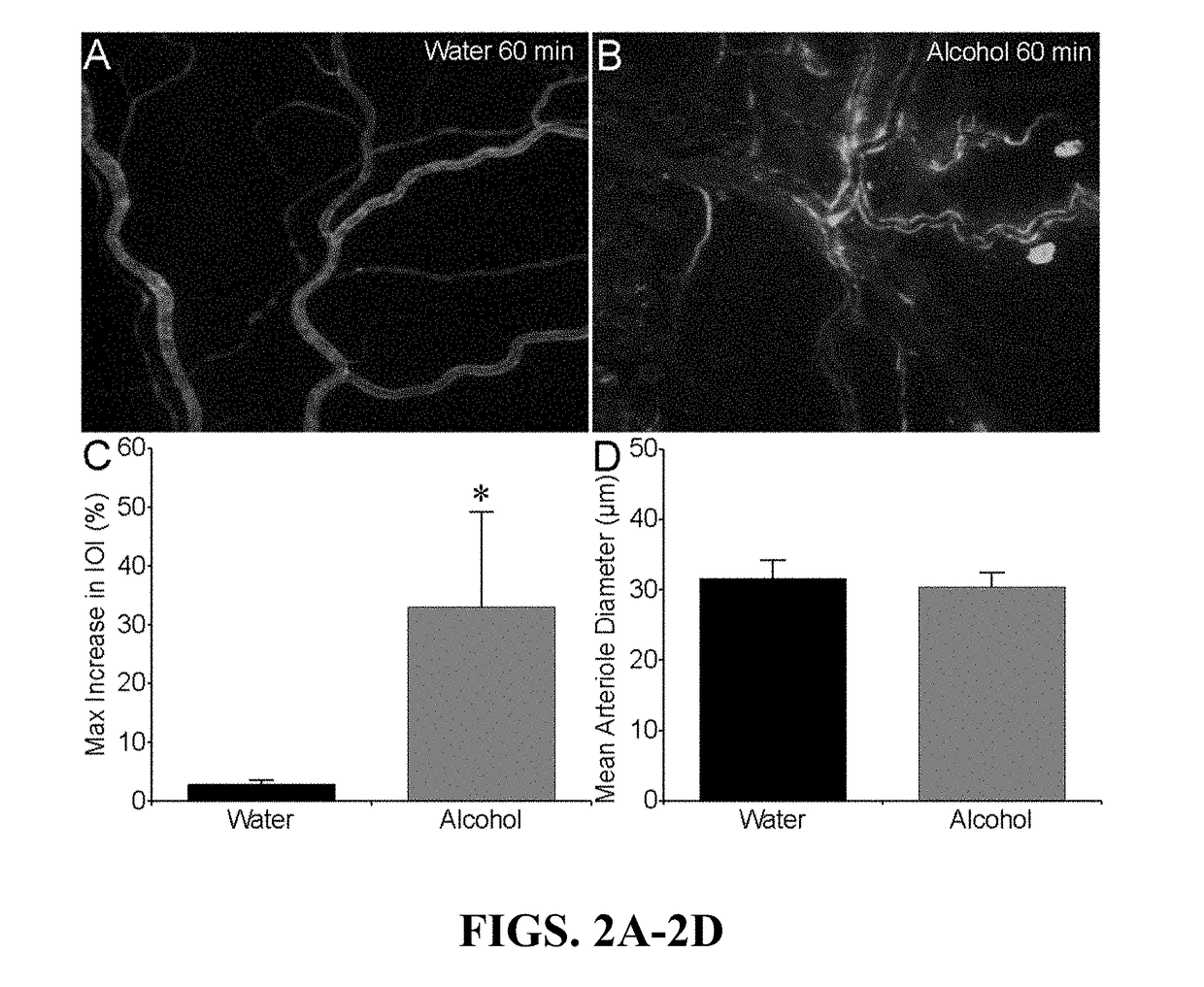Stabilization of alcohol intoxication-induced cardiovascular instability
a technology of stabilization and alcohol intoxication, applied in the direction of organic active ingredients, pharmaceutical active ingredients, heterocyclic compound active ingredients, etc., can solve the problems of reducing the pump activity of patients with mesenteric lymphatics, and significant worsening the outcomes of trauma patients. , to achieve the effect of improving the physiologic state, reducing the risk of stroke, and improving the outcome of trauma patients
- Summary
- Abstract
- Description
- Claims
- Application Information
AI Technical Summary
Benefits of technology
Problems solved by technology
Method used
Image
Examples
example 1
Acute Alcohol Intoxication Stimulated Microvascular Hyperpermeability In Vivo
[0112]Administration of a 2.5-g / kg dose of alcohol was performed via an intragastric catheter that was implanted 2-3 days before the day of experiment. The animals were allowed to roam freely for 30 minutes after administration. This dosage of alcohol produced intoxicating BAC within 30 minutes and was significantly higher than those animals in the time-matched, water-treated groups (FIG. 1). Sixty minutes after the start of IVM, alcohol-treated animals had noticeable extravasation of FITC-albumin from the mesenteric microcirculation compared to controls (FIGS. 2A and 2B). There is marked fluorescence in the surrounding interstitium in the alcohol rats as opposed to the water rats where the fluorescence remains within the vessels of the arterioles, capillaries, and venules. In addition, there is accumulation of FITC-Albumin within and just outside the vessel walls resulting in intense areas of fluorescence,...
example 2
Acute Alcohol Intoxication Significantly Decreased the Barrier Function of Cultured Endothelial Cells
[0114]The direct impact of alcohol on endothelial barrier function was tested using cultured HUVEC or HMVEC-c confluent monolayers grown on gold-plated electrodes. Thirty minutes of baseline transepithelial electrical resistance (TER) measurements were recorded before the cells were treated with alcohol at final bath concentrations of 20, 50 or 100 mM. Alcohol was added directly into the MEDIA within the wells. For both HUVEC (FIG. 3A) and HMVEC-c (FIG. 3B), all concentrations of alcohol tested caused an immediate decline in the TER of the monolayer. The decrease in TER was alcohol concentration-dependent with high alcohol concentrations eliciting a larger drop in TER. The maximal decline in TER from baseline was significant for the 50 and 100 mM concentrations in both HUVEC (FIG. 3C) and HMVEC-c (FIG. 3D). These experiments demonstrated that acute alcohol intoxication alone had a di...
example 3
Acute Alcohol Intoxication Significantly Decreased Baseline MAP and Blunted Recovery of MAP During Resuscitation Following Fix-Pressure Hemorrhage
[0115]The impact of alcohol intoxication combined with traumatic injury on microvascular hyperpermeability was assessed. A fixed-pressure hemorrhage and resuscitation (HSR) model previously described by Molina and colleagues was employed to achieve injury [23-27,41]. Animals had catheters implanted in the carotid artery, jugular vein, and an indwelling gastric catheter 3-4 days before the experiment. The animals were administered a 2.5-g / kg dose of alcohol or isovolumic and allowed to roam freely for 30 minutes. After 30 minutes, baseline MAP measurements were recorded for 30 minutes before the start of hemorrhage. Blood was shed to achieve a fixed-pressure of 40-60 mm Hg for 60 minutes and followed by resuscitation with lactated Ringer's solution for 60 minutes. MAP was monitored and recorded in real-time for the duration of the HSR proto...
PUM
| Property | Measurement | Unit |
|---|---|---|
| molecular weight | aaaaa | aaaaa |
| molecular weight | aaaaa | aaaaa |
| molecular weight | aaaaa | aaaaa |
Abstract
Description
Claims
Application Information
 Login to View More
Login to View More - R&D
- Intellectual Property
- Life Sciences
- Materials
- Tech Scout
- Unparalleled Data Quality
- Higher Quality Content
- 60% Fewer Hallucinations
Browse by: Latest US Patents, China's latest patents, Technical Efficacy Thesaurus, Application Domain, Technology Topic, Popular Technical Reports.
© 2025 PatSnap. All rights reserved.Legal|Privacy policy|Modern Slavery Act Transparency Statement|Sitemap|About US| Contact US: help@patsnap.com



